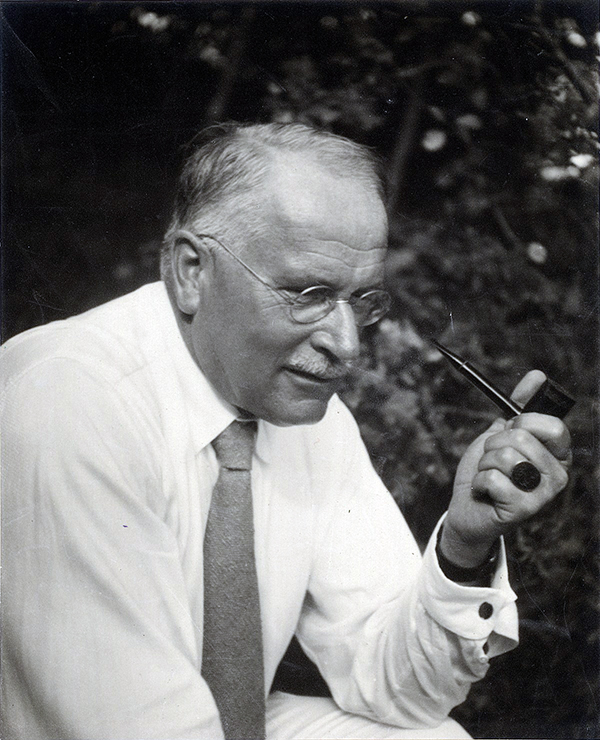
“I am neither spurred on by excessive optimism nor in love with high ideals, but am merely concerned with the fate of the individual human being – that infinitesimal unit on whom a world depends, and in whom…even God seeks his goal.”
— C.G. Jung
Carl Gustav Jung (1875-1961) was a Swiss psychiatrist and leading psychoanalyst who founded an approach to the study of the unconscious which he called Analytical Psychology. In his early psychiatric work, Jung discovered a dimension of the psyche that functions in a universal, yet mysterious way – he saw that in dreams and fantasies, modern-day individuals were experiencing the same stories and psychological patterns that had been recorded in ancient myths, fairytales and religions. His curiosity and naturally empirical approach drove him to question why this would be, and that questioning brought about the birth of what we now call Jungian psychology. He named the universal dimension of the psyche the “collective unconscious,” and recognized it as the source of our conscious lives. Through the extensive research which he carried out his whole lifetime, Jung laid the groundwork for an approach to psychological life that keeps us actively and creatively engaged in our own development and in the development of consciousness in the world, well beyond mid-life. In a culture that was increasingly looking to prolong youth, he taught us to value the nuances and changes of the aging process, which paradoxically allows us to maintain a connection to the youthful enthusiasm for life.Today, Jungian psychology is studied all over the world, and the International Association for Analytical Psychology has member organizations in many countries who train individuals to become Jungian Analysts. Even among people who don’t know who Jung is, such Jungian terms as “collective unconscious", "archetype” and “shadow”, to name a few, are recognized and used in our everyday language. Because of his pioneering work with the unconscious, we are able to move just a little bit closer to the roots of our psychological lives and to experience the profound meaning which that closeness brings.

